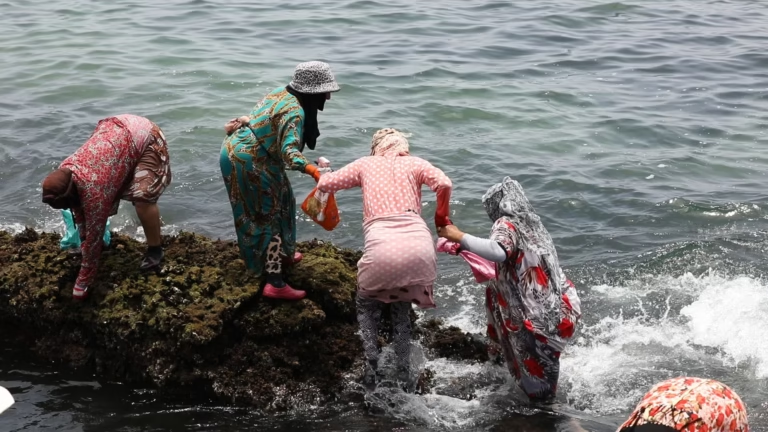An agreement aimed at strengthening financial education and economic inclusion for women working in the maritime fishing sector was signed on Wednesday at the “Halieutis” Fair in Agadir, between the United Nations Entity for Gender Equality and the Empowerment of Women in Morocco (UN Women) and the Crédit Agricole Group of Morocco.
This agreement was signed by the UN Women Representative in Morocco, Myriem Ouchen Noussairi, and the President of the Executive Board of Crédit Agricole of Morocco, Mohammed Fikrat, in the presence of the Secretary of State for Maritime Fishing, Zakia Driouich.
As part of the project “Support for the Economic Inclusion of Women Working in the Fishing Sector,” led by the Secretary of State for Maritime Fishing and UN Women, with the support of the General Directorate of Cooperation and Immigration of the Government of the Balearic Islands, this partnership aims to promote and encourage the economic empowerment of women operating in the fishing sector, in accordance with the High Royal Guidelines and the axes of the Halieutis strategy.
Under this agreement, the two parties plan to support women fishers engaged in activities related to the fishing sector in the areas of Tétouan, M’diq, and Martil by facilitating their access to management tools, financing, and markets in order to strengthen their participation in the local economy and contribute to the development of sustainable fishing value chains.
Through its Center for Studies and Research CERCAM, the Crédit Agricole Group of Morocco will benefit women fishers from its financial education program, a central aspect of this partnership, with training aimed at enhancing their skills in resource management and raising awareness about the prudent use of bank credits.
Furthermore, financial support may be offered by the Group through its subsidiaries: the ARDI Foundation for microcredit and Tamwil El Fellah specializing in meso-credit.
The agreement also includes actions aimed at encouraging and facilitating the grouping of women fishers into cooperatives, economic interest groups, or networks.
This structuring will allow them to pool resources, reduce costs, and strengthen their bargaining power. Additionally, the cooperatives will benefit from modern technological equipment, enabling them to adopt sustainable practices and become key economic agents in their territories.
This collaboration contributes to achieving the Sustainable Development Goals, notably SDG 5 related to gender equality, SDG 10 concerning the reduction of inequalities, and SDG 14 regarding the preservation and sustainable use of oceans and marine resources.
Source MAP


